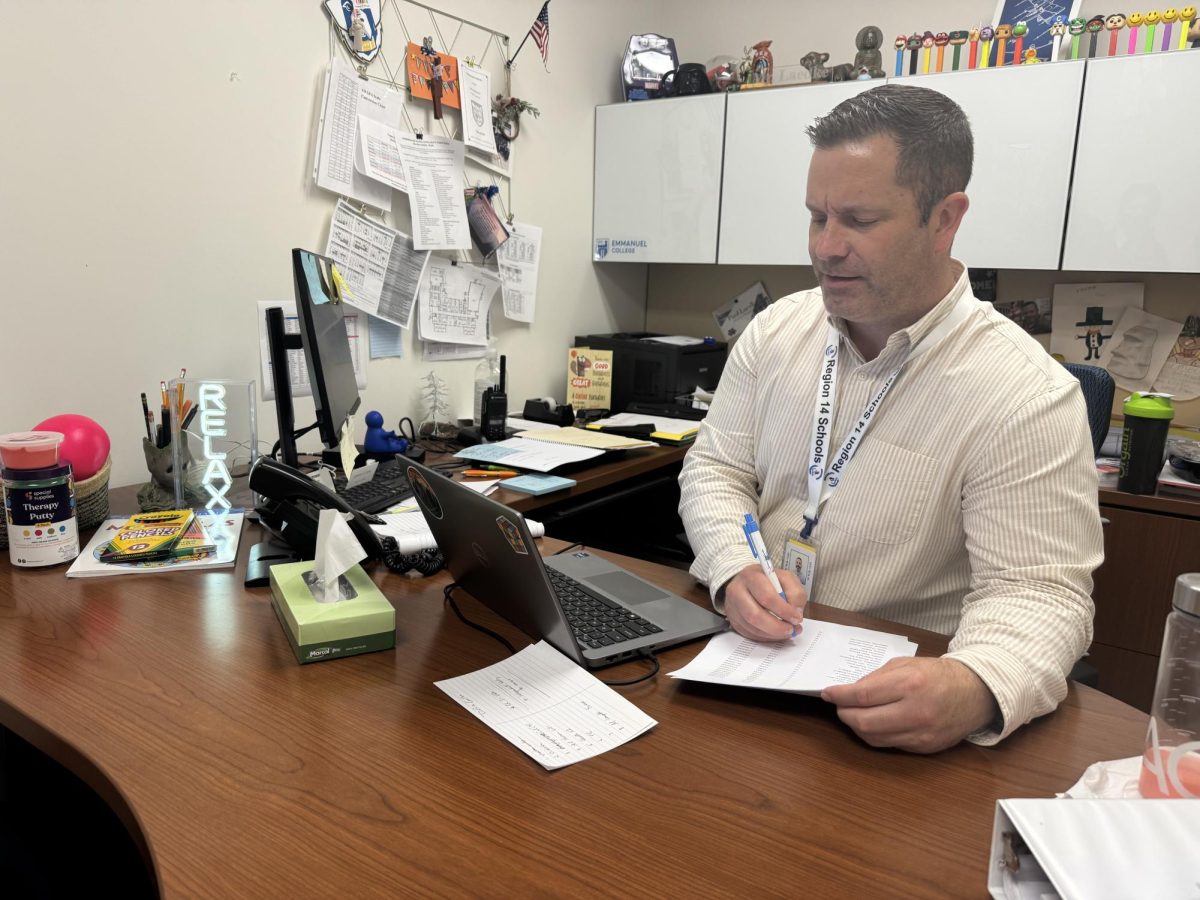WOODBURY — A 504 is a plan to accommodate learning for students who have specific needs to help them learn better. These 504 plans can look different to everyone. Kids can have them for all different reasons including a food allergy, depression, ADHD, anxiety, or dyslexia.
The first step to the 504 plan is not normally started by the students themselves.
“Parents will typically initiate a 504,” said guidance counselor Paul Laedke. “It could be due to a recent diagnosis like depressive disorder, and it was impacting school. So I suggested to the parent to request a 504 meeting because [the student was] having a really hard time getting homework done, because they’re getting home and they’re kind of exhausted from the day and a really hard time focusing.”
Since the need for the 504 is different for everyone the approach will also look completely different.
“The intention is to create accommodations that help a student access their learning,” says Laedke. “For example, a kid that is having difficulty maintaining focus during an 80 minute block of time, one of their accommodations might be a movement break so they can reset. A student that is overwhelmed by school and is having a hard time managing all of their assignments, an accommodation might be a teacher checking work in progress.”
“So then the teacher is taking time to individually reach out to them,” Laedke continues, “and say, ‘Hey, how far along in this process are you? We have a five-paragraph essay by Monday. We need the introduction done. Is that where you’re at?’ So those are ways that it might help a student, kind of achieve more academically.”
A 504 becomes a comfort for some students and helps them know they are protected for whatever they need.
“Mostly,” said English teacher Benjamin Guerette, “I see these kinds of modifications and accommodations as being beneficial because students can focus on their work without having to stress over asking for extra time or to sit in a different seat or anything like that. They can just point to their 504 and know that they’ll get exactly what they need to be successful in school.”
These 504 plans can be very helpful for students when they are used properly but it is seen that it is not good for all students.
“Unfortunately,” said Melissa Hodges, a Nonnewaug science teacher, “some students abuse their extended time and never actually complete the assignments. In a cumulative class like chemistry, this can be very detrimental to learning. Since 504s are legal documents, I abide by any written accommodations. I often encourage students to complete their work in a timely manner.”
The counseling department doesn’t see this as much as teachers.
“I don’t know of any instances,” said Laedke, “where, in my opinion, a student is abusing them.”
This abuse may not be seen by the counseling department as much because of the deep preventions the teachers put in to help all students.
“I have seen many of my students struggle,” said Hodges, “which is why I have tried to create an organized calendar that all of my students can access. Other accommodations include access to class notes, advanced notice for all tests and quizzes, test study guides and answer keys/teacher copy of study guides. I provide these to all students, as I feel they help all students.”
The attempt to prevent abuse is not only implemented by the teachers. The counseling department tries to get one step ahead of the issues.
“I try to be a little more proactive in looking to have them implemented appropriately,” said Laedke. “So one of the things I try to do is communicate with teachers what those accommodations are. I try to get the students to start advocating for themselves so that they’re really aware.”











